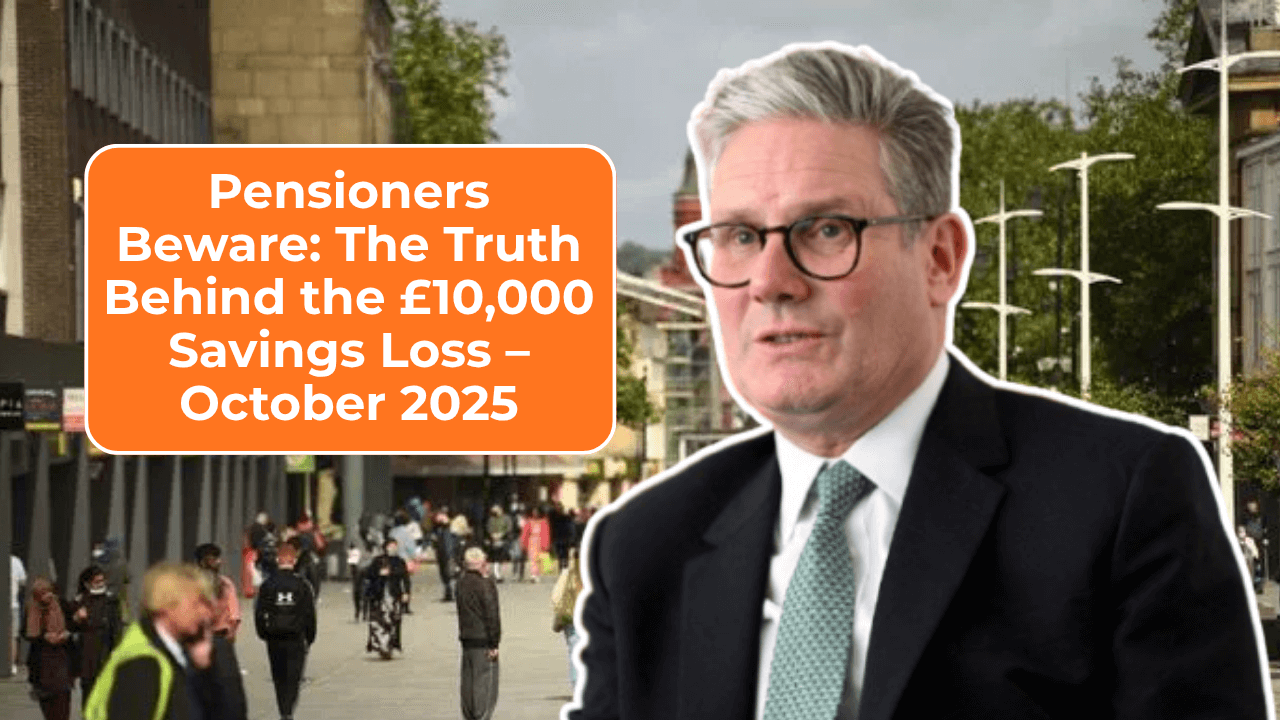Retirement is supposed to be a time of comfort, security, and peace of mind. But recent reports suggest that UK pensioners could be at risk of losing as much as £10,000 from their savings. Understanding what’s happening and how to protect your finances has never been more important.
Rising Costs and Inflation
One of the biggest factors eating into pensioners’ savings is inflation. The cost of living has been rising steadily, affecting essentials such as food, energy, and transportation. Even a small increase in daily expenses can erode years of careful saving.
For example, a pensioner with £50,000 in savings may see their purchasing power drop significantly if inflation continues at its current pace. This isn’t just about comfort—it directly impacts the ability to maintain a decent standard of living.
Changes in Interest Rates
Interest rates play a key role in how savings grow over time. For pensioners relying on savings accounts or fixed deposits, low interest rates mean that their money earns far less than expected. When rates are low, the real return after inflation can be negative, leading to a gradual reduction in wealth.
Many experts warn that even accounts considered “safe” can fail to keep up with the rising cost of living. Choosing the right financial products has never been more critical.
The Impact of Pension Reforms
Government reforms to pensions and benefits can also influence how much retirees can access. Adjustments to the State Pension age, tax rules, or contribution requirements can have a hidden impact on savings. For example, a delay in receiving full pension benefits may force some retirees to draw from their private savings earlier than planned, reducing the total available over time.
Pensioners need to stay informed about these changes and plan accordingly to avoid unexpected shortfalls.
Investment Risks
Some retirees invest their savings to earn higher returns, but every investment carries risk. Market fluctuations can lead to losses that affect both capital and income. For those relying on investments for regular income, downturns can significantly affect financial security.
It’s not just stock markets—bonds, property, and even cash-based investments are susceptible to economic shifts. Diversification and careful planning are essential to reduce the chance of losing large sums.
Rising Healthcare Costs
Healthcare is another area where expenses can unexpectedly rise. While the NHS provides many services for free, certain treatments, medications, and private care costs are not covered. With longer life expectancies, pensioners may face decades of healthcare needs, gradually impacting savings.
Even moderate increases in annual healthcare spending can accumulate to thousands of pounds over time, contributing to the £10,000 savings gap highlighted in reports.
Unexpected Emergencies
Life is unpredictable. Emergency expenses—like home repairs, urgent travel, or family support—can rapidly deplete a fixed savings pot. For pensioners, who may no longer have a regular income stream, the financial impact can be particularly harsh.
Having an emergency fund and considering insurance options can help cushion the blow and prevent long-term losses.
Taxation and Hidden Charges
Many pensioners are unaware of how taxes and charges can silently reduce their savings. Bank fees, investment charges, and capital gains taxes can chip away at returns. Even seemingly small costs, when accumulated over time, can amount to a significant reduction in total savings.
Understanding what you are paying and looking for lower-cost alternatives is essential for maintaining financial health in retirement.
How to Protect Your Savings
Despite these challenges, there are practical steps pensioners can take to protect their wealth:
- Review your financial plan: Ensure that your savings strategy matches your retirement needs.
- Consider inflation-proof investments: Look into products that adjust with inflation to maintain purchasing power.
- Diversify assets: Don’t rely solely on one type of investment or account.
- Plan for healthcare costs: Factor potential medical expenses into your budget.
- Stay informed about government policies: Keep up to date on pension and tax changes that may affect your savings.
Government Support Schemes
The UK government provides several schemes aimed at helping pensioners manage costs:
- Winter Fuel Payment: A yearly payment to help with heating costs.
- Pension Credit: Extra income for those on lower pensions.
- Free TV Licence for over-75s: Reduces entertainment expenses.
Making sure you’re receiving all available benefits can help offset some of the £10,000 savings risk.
Smart Spending and Budgeting
Careful budgeting is more important than ever. Tracking expenses, reducing unnecessary spending, and prioritising essential costs can make a significant difference. Small, consistent savings can add up over time and help protect against sudden financial shocks.
Seeking Professional Advice
Financial advisers can provide guidance tailored to individual circumstances. A professional review can uncover risks, suggest better investment options, and help create a sustainable withdrawal strategy for retirement.
Even simple steps, like consolidating accounts or switching to higher-interest savings, can have a notable impact when guided by expert advice.
Planning for the Future
The £10,000 figure is a warning, not a certainty. With careful planning, pensioners can safeguard their savings and continue to enjoy a secure retirement. Understanding the risks, making informed choices, and taking proactive steps are key to protecting financial wellbeing.
Final Thoughts
Pensioners face a variety of challenges in maintaining their savings. Rising costs, low interest rates, market risks, and unexpected expenses can all contribute to a gradual erosion of wealth. By staying informed, seeking professional guidance, and planning carefully, retirees can reduce the risk of losing significant amounts from their savings.
Awareness is the first step. With proactive measures, you can turn potential losses into long-term financial security and peace of mind.
